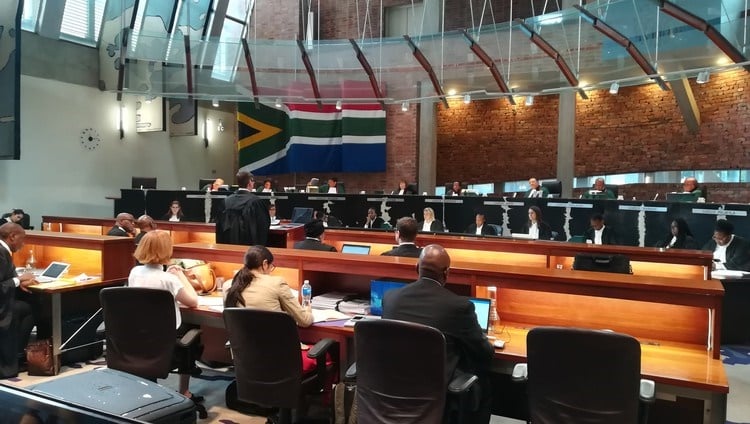
As we celebrate the 25th anniversary of the Constitution, it is opportune to cast an eye back over those years and reflect on how far it has delivered on its social contract and to what extent it has achieved its intended objectives, writes John C Mubangizi and Betty C Mubangizi.
The Constitution of the Republic of South Africa (1996) was drafted between 1994 and 1996.
It was certified by the Constitutional Court in December 1996, and it came into effect on 4 February 1997. That Constitution has guided the democratic, political, and judicial governance in the country for the past 25 years.
As we celebrate this important anniversary, it is opportune to cast an eye back over those years and reflect on how far the Constitution has delivered on its social contract and to what extent it has achieved its intended objectives.
Some argue that the Constitution has not delivered. They say the Constitution is not reflective of citizens' lived realities. They see it as a dream deferred. Others, however, argue that it has been a great success. They see it as a realisation of the great expectations that characterised the long-awaited, hard-earned transition to a constitutional dispensation of the 1990s.
Objectives of the Constitution
In making any assessment of the performance of the Constitution, one has to recall that its objectives were succinctly captured in the preamble which sought to give expression to the fundamental values and purposes of the Constitution as a whole. The objectives included healing the past divisions, establishing a society based on democratic values, social justice and fundamental rights, laying the foundation for a democratic and open society, improving the quality of life of all citizens, and building a united and democratic South Africa.
One of the ways through which the performance of the Constitution can be assessed is by looking at the mechanisms that it put into place to enable it to achieve its objectives. These include, but are not limited to, the protection of fundamental human rights; the success (or otherwise) of the democratic experiment; the performance of the judiciary; the performance of the Chapter 9 institutions and the success (or otherwise) of the decentralised governance model.
In so far as the protection of human rights is concerned, it has to be acknowledged that the Constitution has made significant achievements.
READ | Thabo Mbeki: Constitution turns 25: 'Never allow that anything diminishes this noble product'
Let us not forget that before 1994, human rights were alien to this country. Abuse and violation of fundamental rights was the norm. Let us also not forget that the South African Constitution is hailed as one of the most progressive in the world mainly because it contains a Bill of Rights that recognises all human rights categories, including civil and political rights and social and economic rights.
Many people argue that despite numerous challenges of enforcement, the rights of South Africans have generally been protected - at least much better than the time when such rights never existed.
One of the major achievements of the Constitution is the success of the democratic experiment.
There is no doubt that the Constitution has succeeded in establishing a democratic system of governance. Elections take place regularly and they are generally perceived as free and fair. This is despite the criticism that citizens find it difficult to connect with democratic structures because of the electoral system which is based on party-list proportional representation under which a person votes for a party and the party decides who will represent that person in Parliament.
Of all the successes of the Constitution, none is more profound than the performance of the judiciary.
The South African courts have played a significant role in the realisation of the objectives of the Constitution.
Constitutional Court: Shining example
The Constitutional Court, in particular, has been a shining example of judicial success and achievement. Since its inception, it has passed numerous innovative and landmark judgments, many of which have a direct bearing on protecting human rights and building a human rights culture.
Unlike those in the executive and legislative arms of government, the judiciary members have mainly remained untainted by corruption and wrongdoing - a few exceptions notwithstanding.
In so far as Chapter 9 institutions are concerned, it is fair to say that their performance has been one of the main achievements of the Constitution.
The South African Human Rights Commission, for example, has been able to establish itself as an effective and passionate defender of human rights. It has also been able to develop a reputation for being independent. So too has the Public Protector. Although the effectiveness of the Public Protector has tended to vary from incumbent to incumbent, the achievements of this particular institution under Thuli Madonsela are well known. Unfortunately, the current Public Protector's performance has tended to leave a lot to be desired.
The performance of the Electoral Commission and the Auditor-General over the years has been excellent.
The foregoing examples are some of the arguments of those who see the performance of the Constitution as a true realisation of great expectations.
On the other hand, many people look at the current problems of crime, unemployment, poverty, gender-based violence, inequality, and low economic growth and blame the new constitutional order. They also look at the slow pace of transformation, persistent racism, corruption and poor service delivery and argue that the dream has not only been deferred, but it has turned into a nightmare. Several examples are often cited.
In the limited space of this opinion piece, we can only focus on two.
Local government system
Mention was made earlier of the decentralised governance model introduced by the 1996 Constitution. This led to a complete transformation of the local government system.
These laws ensured that all areas of the country had local structures comprised of locally elected councillors and ward committees to work with local communities through a developmental local government approach. In this way, democratisation was brought to the length and breadth of the country, with citizens having a say in electing councillors to represent them in the local government council.
The Constitution mandates these local councils, among other things, to ensure the provision of services to communities in a sustainable manner and promote the provision of social and economic services. The Constitution enjoins municipalities to strive within their financial and administrative capacity to achieve the objectives of service delivery and local economic development.
The result of this is the denial of the realisation of the constitutional dream, particularly for those in small rural-based municipalities whose remoteness, weak revenue base and inability to attract high-level professionals tend to constrain their ability to deliver on their constitutional mandate.
The other example is corruption, which has become institutionalised, systemic and normalised in South Africa.
Despite a sufficient legal framework that includes several international anti-corruption treaties and agreements that South Africa is a party to, various provisions in the South African Constitution and several statutes directly or indirectly bearing on corruption have become endemic.
The length and depth of this opinion piece do not lend themselves to a detailed discussion of the extent of corruption in South Africa. Suffice to say that of all the evils that are responsible for deferring the constitutional dream; corruption ranks highest. There are many others. As with every argument, there are always pros and cons.
Whether the South African Constitution has realised the citizens' great expectations or whether it is a dream deferred is one such argument. You be the judge.
- Professor John C Mubangizi Dean: Faculty of Law, University of the Free State
- Professor Betty C Mubangizi SARChI Chair: Sustainable Local (Rural) Livelihoods: University of KwaZulu-Natal
Disclaimer: News24 encourages freedom of speech and the expression of diverse views. The views of columnists published on News24 are therefore their own and do not necessarily represent the views of News24.




 Publications
Publications
 Partners
Partners
























